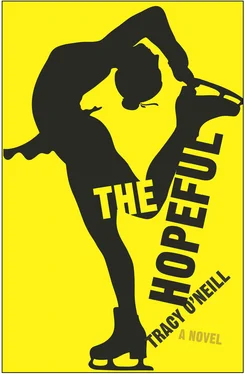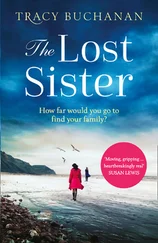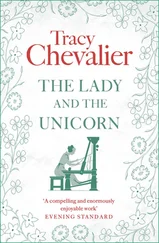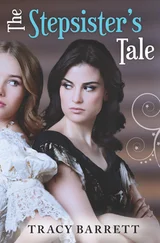On our car rides, my father and I would talk about the future. I’d say, “In three weeks I will master the spin.” He would say, “In three years, you’ll qualify for the national championships.” In time that hadn’t passed yet, we choreographed sequences of triumph, whirling away from todays, accenting time signatures with arrhythmic feats and perfect crescendos.
My father’s vocabulary circulated in the ellipses of my own. The death drop, he could tell the uninformed, is a flying spin in which the legs split apart and weight shifts at the pinnacle of flight to form a sideways cross. The counter is a serpentine figure traced on one edge with a swift flip to the reverse edge. Above overpasses and beneath tunnels, through interstates and around bending roads, he dreamt constellations of brilliant movements connected by the etchings of my feet. All the while, little houses and groceries looked to be pulling away, but really we were hurtling forward.
When we ran out of things to say, there was the Long Distance Dedication radio show. Our favorites were what we called the long long distance dedications. Those were the ones made to dead people. Sometimes the dead people were dogs, but mostly they were young people wrenched too early from life by drunk driving accidents or rare diseases that ravaged their immune systems but not their spirits. The dedications happened every ten songs during the Top Forty Countdown program and they came from small towns like ours, from people we thought were nothing like us. Never happy, the songs were requested in letters most would be embarrassed to speak out loud. “Pipe up!” I would say, and my father would turn the volume knob on the car radio until maudlin strains of piano tinkled through the speakers behind the voice of the radio personality reading the letters.
Dear Casey, the requests began.
“So they’re on a first name basis?” I asked.
“No, Casey’s just gotten so big he’s only got room for a one-word name like Madonna,” my father said.
“Jesus,” I said.
“Christ,” he said.
We listened for clues as to what kind of letter it would be. For as long as I can remember, my next door neighbor Sally was my best friend in the world. Even after she received the diagnosis she made every day alive. Or, I was just a regular teenage girl until three days before homecoming I was diagnosed with mononucleosis.
“Is that a joke?” my father asked.
“No, that’s a teenager,” I said. The song was “Can’t Take My Eyes Off Of You,” and we postulated gruesome literal interpretations even after Casey had progressed to the nineteenth and eighteenth most requested song of the day. We laughed at other people’s misfortune because it seemed then it could never be our own.
My mother treated the New England Regional Championships like a prom. She figured I’d never have one for her to photograph, but at least there would be an affair of a dress. Lauren recommended a skating seamstress named Kasia and sent her five pages of notes on Firebird. God-defying was the main point, hypnotic the second, but my mother pulled pages from teen magazines. I hadn’t seen her so excited since she ordered the fourteen-inch Porcelain “Heritage” Gratins the year before, so even though the magazine dresses looked like Easter baskets, I turned my mouth to an admiring O. Before the seamstress’s mirror, I looked at a pale yellow puff that raised left with my right. I was God-defying alright.
I had the entire day planned as a scientific experiment. Two hours before the competition, I would drink eight ounces of protein shake. An hour before I would begin to jump rope and stretch. Thirty minutes before I would urinate. Twenty-five minutes before I would wash my hands vigorously. Twenty minutes before I would change into the horrible dress, lace my skates, and bend my knees ten times to check the tightness of my lacing. Then I would make fate.
“How do you know you’ll have to go then?” my mother asked over dinner the night before. A spinach soufflé sank in the middle of the table.
“I know because I’ll make myself,” I said.
“You can do that?”
“I make myself all the time,” I said. “Skating is no time for accidents.”
“Unless it’s the other girl,” my father said.
“Alvin,” my mother scolded.
I kept my mouth working on a boiled egg. I wanted nothing to do with accidents. A forgotten kitchen alarm sounded.
“I was always almost peeing my pants when I was pregnant,” my mother said, ignoring the alarm.
“Lou.” My father got up and turned off the alarm.
“It’s true,” she said. “But I forgot: we don’t talk about failure in this household. We’re champions in this household.”
“You aren’t a failure, Mom.” I spooned some soufflé onto my plate. “And this is absolutely to die for! Genius! Brilliant! Delicious!” A spoon of soufflé in my mouth, I smiled as best I could.
“I’m sorry,” she said. “This is why I should keep a journal. I’d be a better mother if I just wrote these things in a journal. That’s what they advise in the books: you write down the ugly feeling, you crumple it up, you throw it away, it never comes back. Done. Solved. Health. Release.”
“Genius! Brilliant! Delicious!” I said, taking another bite. “You don’t need a journal. You’re great.” I looked at the clock. “But I’m going to bed. I’ve got to stay on schedule.” She kissed the hair at the top of my head goodnight.
“Dream victorious,” my father said. I took the stairs in twos to wait for tomorrow.
The next morning, I woke up and hung my competition dress on a hanger and with the whiz of the garment bag closure, it was as though I was sealing the transition between every day and today, the day, competition day, the day my year would be justified or a sad little joke.
I went to the bathroom, looked in the mirror and threw up in the sink not even on purpose. I interpreted the vomit as a bonus and gargled a mint rinse. I pulled my hair so tight into a bun that my face stretched. I, I, I, it was my day, I thought, but then I threw up on the way downstairs again.
“You’re sick,” my mother said. “You can’t go.”
“I am and I can,” I said. Green feathers of spinach bunched between the cracks of the kitchen tiles.
“Ali, you do look a little puce,” my father said. “Do you feel puce?”
“I feel like we have seven minutes to get in the car to make it to the competition early enough to be on-time.”
And so we left, my mother glancing back at me every few minutes.
“We’ll be proud of you even if you’re vomiting too much to skate,” she said.
“I won’t,” I said. I jumped imaginary, perfect jumps and watched the clock.
When we arrived at the rink, I hung my dress in the locker room and went to jump rope by the bleachers. I could all see my breath whiten and fade in the frigid interior, and the place was buzzing with a cold electricity. “You have a right to be sick,” my mother said. “Whatever you decide, right?” I kissed her cheek and slapped the rope in circles against the grounding.
I’d gotten through bouncing three hundred times without anything coming up when Ryan swept down the cascading steps, glinting like a blade, to wish me perfect jumps.
“Have you been vomiting?” he whispered.
“Three times,” I said.
“Good girl,” he said. “Light as a feather, thin as a board.” I didn’t have the heart to tell him the sickness wasn’t intentional. Instead, I grabbed a trash barrel, feeling a thrust inside. “Let’s not be overeager now, sassy-ass,” he said, patting my back. “You’ve still got six years of that ahead of you.”
“Six?”
“Oh for the days when six was perfect,” he said. “But that was then and now you’re more than almost fabulous. Now get out there and ex-e-cute.”
Читать дальше












